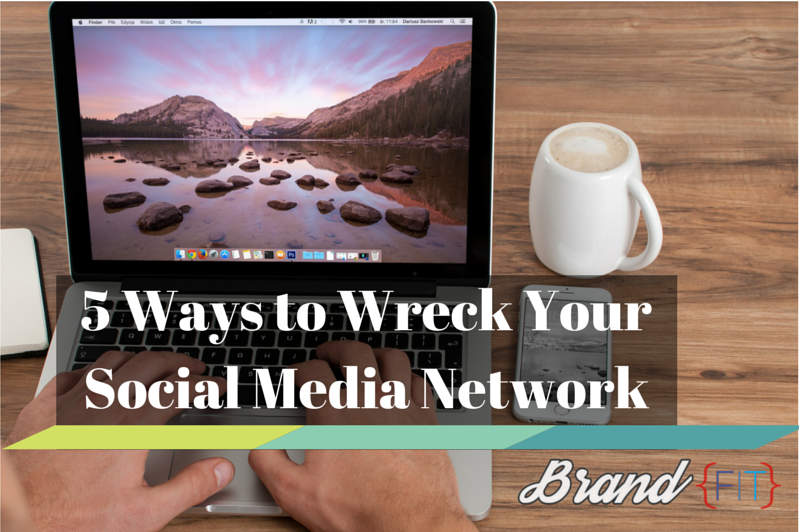5 Surefire Ways to Wreck Your Social Media Network
Technology has made staying in touch with personal and professional networks easier than ever before, whether it’s using contact-management software like Salesforce or social media channels like LinkedIn or Facebook.
Today, a strong and vibrant online network is as valuable as a Rolodex was to a salesperson in the 1950s. But unlike the clunky rotating card file, these digital networks are easily destroyed. To protect your network (and you really need to) avoid these following common mistakes:
1. Collecting. Many people see social media as a way to collect people like some individual might collect coins or stamps. They don’t ask themselves, What value lies in connecting with this person?
If a potential contact doesn’t move in the same business circles as you do, is not in your industry and is not likely someone you would want to stay in touch with if social media didn’t exist, then adding him or her to your network works against you by making it more difficult to stay connected with more useful and valuable contacts.
2. Mooching. Everyone has a friend or family member who is touch only when he or she wants a burdensome favor. It’s common to roll the eyes and avoid picking up the phone when the caller ID flashes the name on the screen.
In contrast, I try to remain in touch with those in my online social network though my contacts number several thousand. I occasionally drop a line to various individuals to see what’s going on in their lives. I look for ways to help my network contacts, so that when I do need a favor, they are more likely to do so willingly and cheerfully.
But more than that, my network is a population of people I genuinely care about. It’s not all about what they can do for me as much as it is about staying digitally connected to people whom I couldn’t possibly call once a week.
3. Neglecting. A strong network is like a garden. It takes a lot of work to keep it alive and vibrant. Whenever I travel, I do a search of my contacts to see who is within 50 miles of where I will be staying. I set up lunches, dinners and dates for drinks. Even someone you know well appreciates this occasional human contact.
I also periodically contact people in my network to see what they hope to get out of the professional relationship. If they’re looking for job opportunities, I will interact with them differently than if they are looking for professional contacts.
4. Preying. Most of us don’t like spam and that doesn’t change when it comes to our role as participants in a social media forum. Yet a growing number of members of social networks are treating their contacts like names on junk email lists. Should you behalf this way even if people don’t tell you to stop, chances are they don’t like it and you are hurting your reputation. Predatory behavior, however mild, turns people off and makes you seem like an amateur.
5. Intruding. Not everything posted by one of your contacts requires you to “like,” share or comment on it. A person who shows up on your home page every time you sign on and who has something to say about everything you post starts to appear a bit intrusive and even creepy. Save your comments for things you think your contact will really appreciate and value.
Social networking was meant to make human interaction easier not to replace it. Improper behavior with contacts in your online network is every bit as undesirable as mistreating these people in person. In short, your involvement in a network should be a means to an end, not an end itself.
By: Phil La Duke
http://www.entrepreneur.com/article/234504
0

